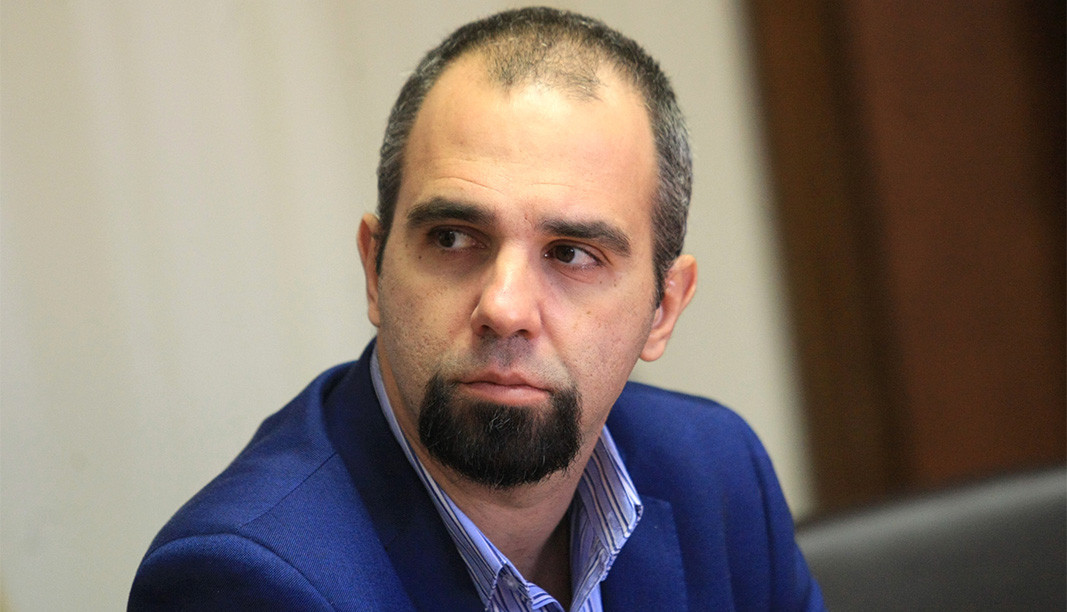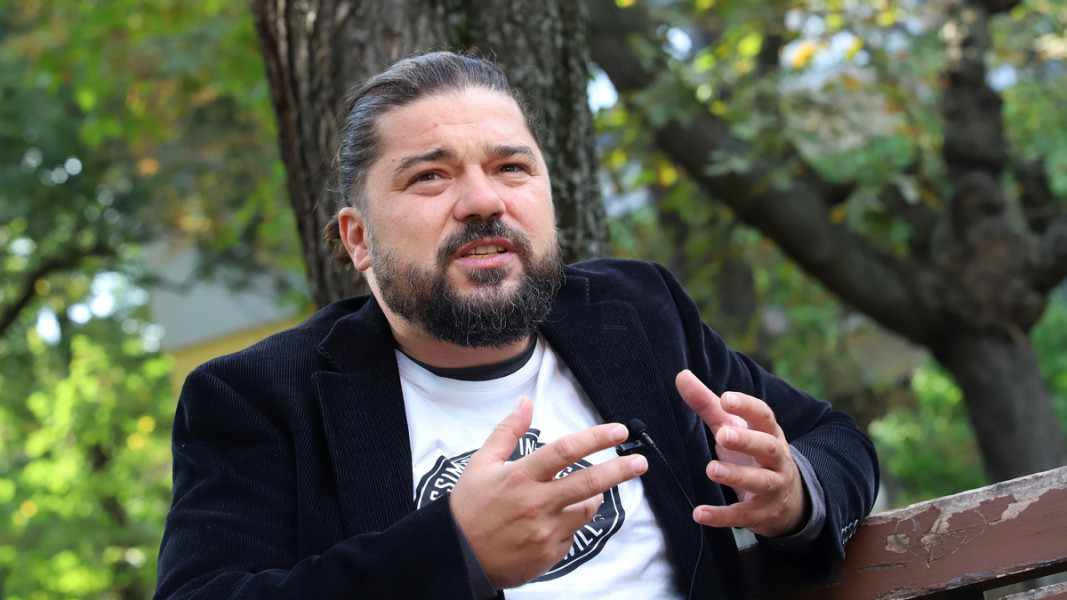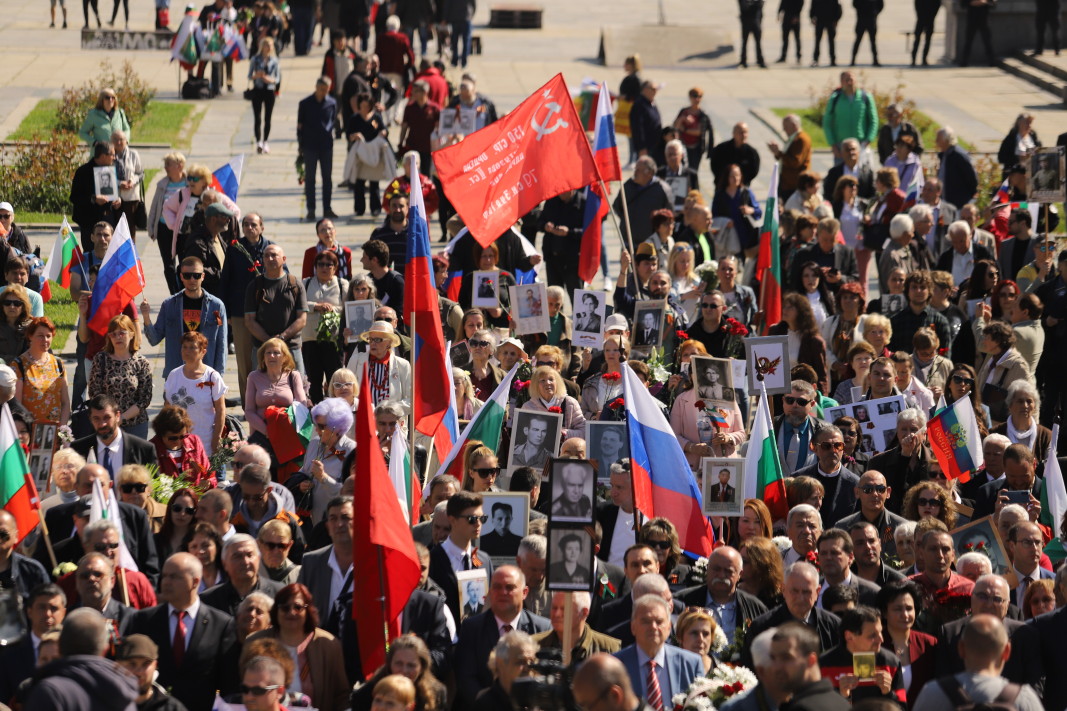May 9th this year has set dividing lines in Bulgarian society, which was previously used to celebrating Europe Day and the Day of Victory over Nazism focusing on the importance of both of them. On the one hand, Europe Day is about celebrating laying the foundations of today's European Union. On the other, the unconditional surrender of Nazi Germany, signed on the night of May 8-9 (22:43 European time; 00:43 Moscow time), is also marked as the Victory Day over Nazism, ending World War II in Europe. Both events are significant and there should be no reason for division, political scientists Parvan Simeonov and Strahil Deliiski say. In an interview with BTA, the two commented that polarized groups in Bulgarian society were noisier, but in fact a minority.
According to Parvan Simeonov, the best option for May 9 would be to give history respect and think about politics separately. “We should not project today's policy on the past. We need to have nuanced thinking."

According to Simeonov, May 8th and May 9th were the days when Nazism was defeated and at the same time May 9 is Europe Day and we must be able to separate these facts from other events. "I think we can think about and discuss these things – we can condemn Putin's aggression and still not forget that in the middle of the 20th century, the Soviet Union, the United States and Britain stood together against Nazism. We can pay tribute to the victory over Nazism, in which Bulgaria also participated during the second phase of the war and at the same time we cannot deny Europe Day," Parvan Simeonov said. According to him, this was a matter of the political elite’s wisdom.
According to political scientist Strahil Deliiski, outside the context of the war in Ukraine, it seems that the idea that Europe Day would have been impossible without Victory Day is commonly shared. However, the current war will surely lead to new dividing lines in society when it comes to May 9, Strahil Deliiski says.

"Society’s polarization regarding the war in Ukraine, is very visible but polarized groups are minorities in the society. Yes, their positions are heard loudly and they set the agenda somehow, but every poll shows that the majority of Bulgarian citizens do not need this type of polarization in order to identify as a group. Minor groups feed on polarization. The problem occurs when these minor groups have a very strong presence in media and in government institutions.”
According to Deliiski, a traditional attitude towards Russia is by no means in conflict with the clear pro-European ideas and values shared by the vast majority of Bulgarian society. "These two things are not mutually exclusive. Division occurs when these attitudes are used for political mobilization. One can have sympathy for Russia traditionally and sympathy for Europe at the same time; there is no contradiction in that. We can be anything we want, but when the choice of identity is shrunk to just two options, this is obviously propaganda."

According to the analyst, the Bulgarian society is severely divided and economic imbalances are at the heart of this division. This is because the gap between different social groups is so wide that it is a matter of a very slight "push" in order for these divisions to be "packaged" in different cultural identity frameworks.
Editor: Darina Grigorova
English: Alexander Markov
Photos: BGNES, libraryFrom fear and doubts to joy and support – Bulgarians react differently to the upcoming introduction of the euro on January 1, 2026. For some, it is a logical step towards Bulgaria’s integration into the EU with promises of stability..
Teodora Byalkova joined the Bulgarian Sunday school "Sts. Cyril and Methodius" in Athens in the 2022/23 school year. At that time, she also organized the dance formation "Ludi-Mladi" for current and graduated students. Since then, the..
The village of Novo Selo is located on the road between Veliko Tarnovo and Sevlievo. Here archaeologists have found tools used by people during the Chalcolithic, which testify to an active economic life in the area. There is also..
From fear and doubts to joy and support – Bulgarians react differently to the upcoming introduction of the euro on January 1, 2026. For..
On November 21–22, 2025, the 11th edition of the Career Fair will take place at the John Atanasov Hall in Sofia Tech Park. The forum aims to support..
Bulgaria celebrates National Reading Day on the third Friday of November. The Reading Foundation is leading the initiative under the motto: “Read. For..

+359 2 9336 661
